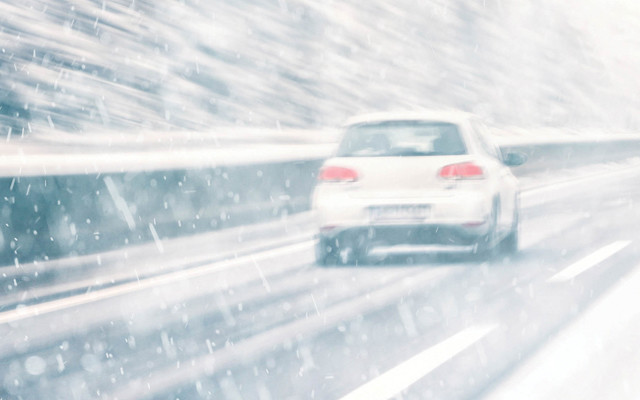AUGUSTA, Maine — MEMA continues to assess storm-related issues after heavy snow and strong winds swept the state Thursday, Jan. 4.
Extremely cold temperatures are expected to set in tonight and continue through the weekend. Concerns today include heating fuel needs, flooding, snow removal safety and extremely cold temperatures. The State Emergency Operations Center will remain partially activated today and most county Emergency Management Agencies are staffed through the day and are actively monitoring conditions.
Those who heat with oil or propane are encouraged to monitor levels closely and if they are expecting deliveries, be sure to clear a path to allow easy access for the delivery crews.
Flooding is reported in several coastal areas, prompting a reminder of the following:
- Never drive a car into a flooded roadway as the road underneath may be washed out.
- Stay clear of streams during flooding, swiftly moving water is extremely powerful and can easily overpower a person or vehicle.
- Keep children and pets inside and away from flooded streets, culverts, and streams.
- Report flooding to the appropriate authorities.
- Obey road blocks and barriers, even if the flooding has receded. Flood waters may have undercut the road surface or left dangerous debris in the roadway.
- If you live in a flood prone area, have a plan in case the water starts rising quickly.
- Know your evacuation route and if advised to evacuate, do so immediately.
When removing snow, remember to take the following precautions to prevent injury:
- Individuals over the age of 40, or those who are relatively inactive, should be especially careful.
- Those with heart trouble should consult a doctor to make sure it is safe to shovel.
- Avoid shoveling immediately after eating or while smoking.
- Pace yourself. Shoveling can raise your heart rate and blood pressure. Be sure to stretch out and warm up beforehand.
- If you can, shovel soon after the storm, when the snow is fresh and powdery.
- Push the snow as you shovel. It is easier on your back than trying to lift the snow out of the way.
- Pick up small amounts at a time, especially if the snow is heavy and wet.
- Lift with your legs bent, not your back.
- If you run out of breath, take a break. If you feel tightness in your chest, stop immediately. Stop before you reach the point of exhaustion.
- Dress warmly. Limit exposure to your nose, ears, hands and feet. Turtleneck sweaters, cap, scarf, face protection, mittens wool socks and waterproof boots provide the best protection.
Snow blower safety
- If the blower jams, turn it off.
- Keep your hands away from the moving parts
- Avoid using the snow blower while consuming alcohol.
- Avoid running a snow blower in an enclosed space to prevent Carbon Monoxide poisoning.
- Never refuel while the snow blower is running
Safe snow removal from roofs:
- Consider hiring professionals to do the job or at least have someone with you to assist — and to remind you not to take dangerous risks.
- Use a snow rake for pitched roofs (available at most hardware stores)
- Stand back and rake small amounts at a time to avoid snow falling on top of you.
- Start from the edge and work your way up onto the roof with the rake.
- Try to shave the snow down to 2 or 3 inches on the roof instead of scraping the roof clean, which will risk damage to your shingles or other roof covering.
- An aluminum rake will conduct electricity. Check where the power lines enter your house, and stay well away from that area while using a roof rake.
- Remove large icicles carefully if they’re hanging over doorways and walkways. A cubic foot of ice weighs about 62 pounds. Consider knocking down icicles through windows using a broom stick.
- Wear protective headgear and goggles when performing any of these tasks.
- Keep gutters and drains clean, free of ice and snow and keep downspouts clean at ground level.
- If you are a business owner and have employees working on snow removal, review please remember to follow OSHA guidelines.
Warming centers remain open in some areas, as needed. A full list is available at http://www.maine.gov/mema/mema_masscare.shtml.
For additional preparedness, shelter and safety information, please visit MainePrepares.com, or visit MEMA on Facebook or Twitter. Shelter information is also available by calling 2-1-1 or contacting your local town office, fire or police department.








